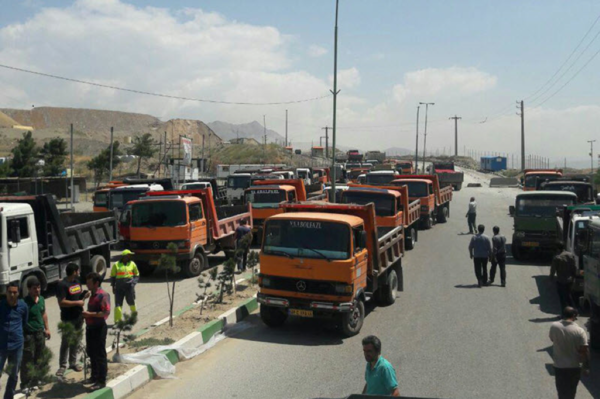
The failed plot by the Iranian regime to bomb an annual gathering of the Iranian opposition movement outside of Paris began the journey to trial when Germany transferred an Iranian diplomat involved in the plot to Belgium where he was charged with planning the terror attack according to a state prosecutor.
The diplomat, identified only by his given name as Assadollah Assadi, worked at the Iranian embassy in Vienna. The other three alleged participants have also been charged in Belgium.
Two of them were arrested by Belgian police in June with 500 grams (one lb) of TATP, an explosive that can be home-made from easily available chemicals, as well as a detonation device.
Iran predictably denied French accusations that one of its diplomats was involved in a plot targeting an annual gathering of the National Council of Resistance of Iran (NCRI) on June 30.
Tehran summoned the German ambassador to complain
The audacity of the Iranian plot and the mullahs’ willingness to suffer the repercussions of international condemnation highlight their long embrace of terrorism as a tool of statecraft. It also reaffirms the correctness of the decision by the U.S. to pullout of the Iran nuclear deal and re-impose economic sanctions because of the regime’s support of terrorism.
The long civil wars in Syria and Yemen have also reinforced the perception that the mullahs in Tehran care little about international diplomacy and peace initiatives and instead are intently focused on strengthening their control over neighboring countries and suppressing the rights of their own people in order to curb dissent.
That internal struggle has manifested itself in a long series of ever-growing protests that have threatened the mullahs hold on power and rocked Iranian society to its core.
In the last iteration of that unrest, shop owners in Iran have joined truck drivers in a strike across dozens of cities in protest against deteriorating living conditions amid widespread economic woes.
Sources told the National that a number of shopkeepers refused to open their shops in the second day of strikes.
Truck drivers began the strike more than two weeks ago in cities across Iran, including major cities such as Tabriz. According to Arabic newspaper Al Hayat, at least 320 cities have been affected.
Iran News Wire, an opposition news agency based in San Diego, posted a video of stationary trucks supposedly parked in protest in the city of Dorud in Lorestan Province.
“At its heart, it’s the socio-economic situation that is largely driving the recent discontent, with strikes serving as a means to voice these grievances – poverty, unemployment, low wages, lack of economic growth, and depreciating currency, rising prices,” said Kierat Ranautta-Sambhi, a regional security analyst at Le Beck International.
The International Monetary Fund predicted last May that the US administration’s announcement of their withdrawal from the nuclear agreement, would shrink the Iranian economy by 1.5 per cent this year and 3.6 per cent in 2019.
Iran’s economic woes have been exacerbated by pitiful management of the country’s environment resulting in massive drought conditions wiping out once fertile farmlands. That environmental impact has spread to neighboring Iraq where Iran has cut off water supplies into the Tigris river in order to divert supplies to Iranian agriculture projects.
The ripple effect of the regime’s decisions is having devastating impacts as social media has been flooded with images of people across the Tigris, a never previously recorded phenomenon.
It may not be coincidental that move to cut off Iraqi water is having a deleterious effect on Iraq’s semi-autonomous Kurdistan region, as well as added to deep public dissatisfaction in Iraq over economic issues.
Both may be efforts by the mullahs to further destabilize potential threats and allow them to sow chaos thereby allowing them to continue exerting influence on their neighbors.
The weaponization of food and water are a logical next step in the terrorist tool kit for the Iranian regime and only proves the depths the regime is willing to go to achieve its aims no matter what innocents are harmed in the process.
The looming U.S. economic sanctions, especially those due to kick in next month on Iran’s oil industry, may in the long run prove too much for the mullahs to overcome as the U.S. Treasury Department warned the rest of the world to beware of money fleeing the Islamic state, especially funds being smuggled out by friends and families of the mullahs and those controlling the Revolutionary Guard Corps.
“Any country that allows its central bank to be involved in deception in support of [Iranian] terrorism requires the highest levels of scrutiny, particularly when the country itself is the world’s largest state sponsor of terrorism,” Treasury Undersecretary for Terrorism and Financial Intelligence Sigal Mandelker said Thursday.
The Financial Crimes Enforcement Network (FinCEN) issued the advisory “to help financial institutions better detect and report potentially illicit transactions related to the Islamic Republic of Iran.”
Ultimately the true test of the Iranian regime’s commitment to terrorism will come when the full force of sanctions hit and the mullahs will have to decide whether or not to reform their government or face a popular uprising from the Iranian people.
Laura Carnahan